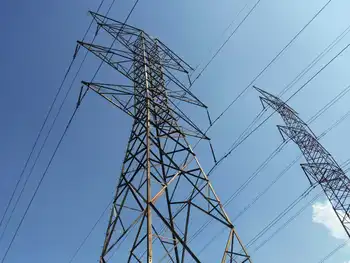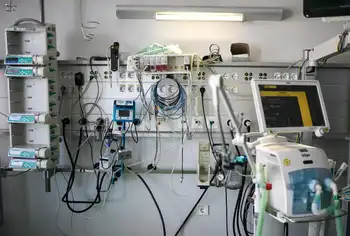Study to learn power of smart grids, appliances
LOS ANGELES, CALIFORNIA - Right now in homes across the United States, the water heater is pretty much a loner and the clothes dryer is dumb as a stone.
But within 10 years, "smart" power grids passing information back and forth with "intelligent" home appliances may save enough energy during peak electricity demand to keep utilities from building expensive substations and major transmission lines, say backers of a year-long experiment that begins this month.
Hooked up by wireless connections with home computers and by broadband with local utilities, hot water heaters, air conditioners, dryers and other appliances in the study will shut off or limit power use depending on demand on the wider power grid.
About 300 homeowners in Washington and Oregon have volunteered for the GridWise study conducted by the Pacific Northwest National Laboratory of the U.S. Energy Department. Among other participants in the $2 million to $3 million experiment are IBM, the Bonneville Power Administration and Whirlpool Corp.
Creating a smarter grid and connecting to individual homes where customers can manage power use - with the incentive of money for cutting back during high demand - could save $80 billion over 20 years in utility infrastructure such as high-voltage transmission lines that don't have to be built, said Ron Ambrosio of IBM.
"If we can squeeze more power through our existing assets, we can help homeowners, and giving price incentives to use power at night and other low-use times," said Rob Pratt, manager of the GridWise program for Pacific Northwest National Laboratory said during a recent telephone press conference.
Most of the technology needed for the "smart" grid and appliances is on hand now, but it will take eight to 10 years before its use is widespread enough to notice major savings.
Researchers asked, "How can we bring regular electric customers into the power grid as partners in managing and operating that grid," Pratt said. "In the future, customer loads will play as important a part of the grid as supply does.
In the study and perhaps in wider use later, home customers will save on their power bills by using less electricity and also by getting payback for cutting use during high-demand times when the transmission grid is most fragile.
Customers can set preferences for levels to automatically adjust appliance power use. They can curtail or reduce energy use when prices are higher than their programmed preferences, said Ambrosio.
Appliances are most likely not to shut entirely but rather cut back. For instance, a dryer's heating element will take a break of a few seconds to several minutes while the dryer's drum will continue to turn.
Whirlpool has given 150 new "grid-friendly" dryers to homeowners in the study. Study advocates say they hope that such "intelligent" appliances are soon readily available. Wider sales of such appliances will cut their current high costs, they said.
It costs about $1,000 on average to outfit a home for the study, but that cost includes the price of research unique to this study.
Within a few years, that cost will drop and once it reaches $200 per customer and such programs as GridWise will spread, said Pratt.
In the study, homeowners who cut use during peak demand hours - usually when businesses and schools are open in the morning and during early evening - will on average save about $150 per year in incentive bonuses used in the model program.
Related News

Potent greenhouse gas declines in the US, confirming success of control efforts
WASHINGTON - A new NOAA analysis shows U.S. emissions of the super-potent greenhouse gas sulfur hexafluoride (SF6) have declined between 2007-2018, likely due to successful mitigation efforts by the Environmental Protection Agency (EPA) and the electric power industry.
At the same time, significant disparities that existed previously between NOAA’s estimates, which are based on atmospheric measurements, and EPA’s estimates, which are based on a combination of reported emissions and industrial activity, have narrowed following the establishment of the EPA's Greenhouse Gas Reporting Program. The findings, published in the journal Atmospheric Chemistry and Physics, also suggest how additional emissions reductions might be…




